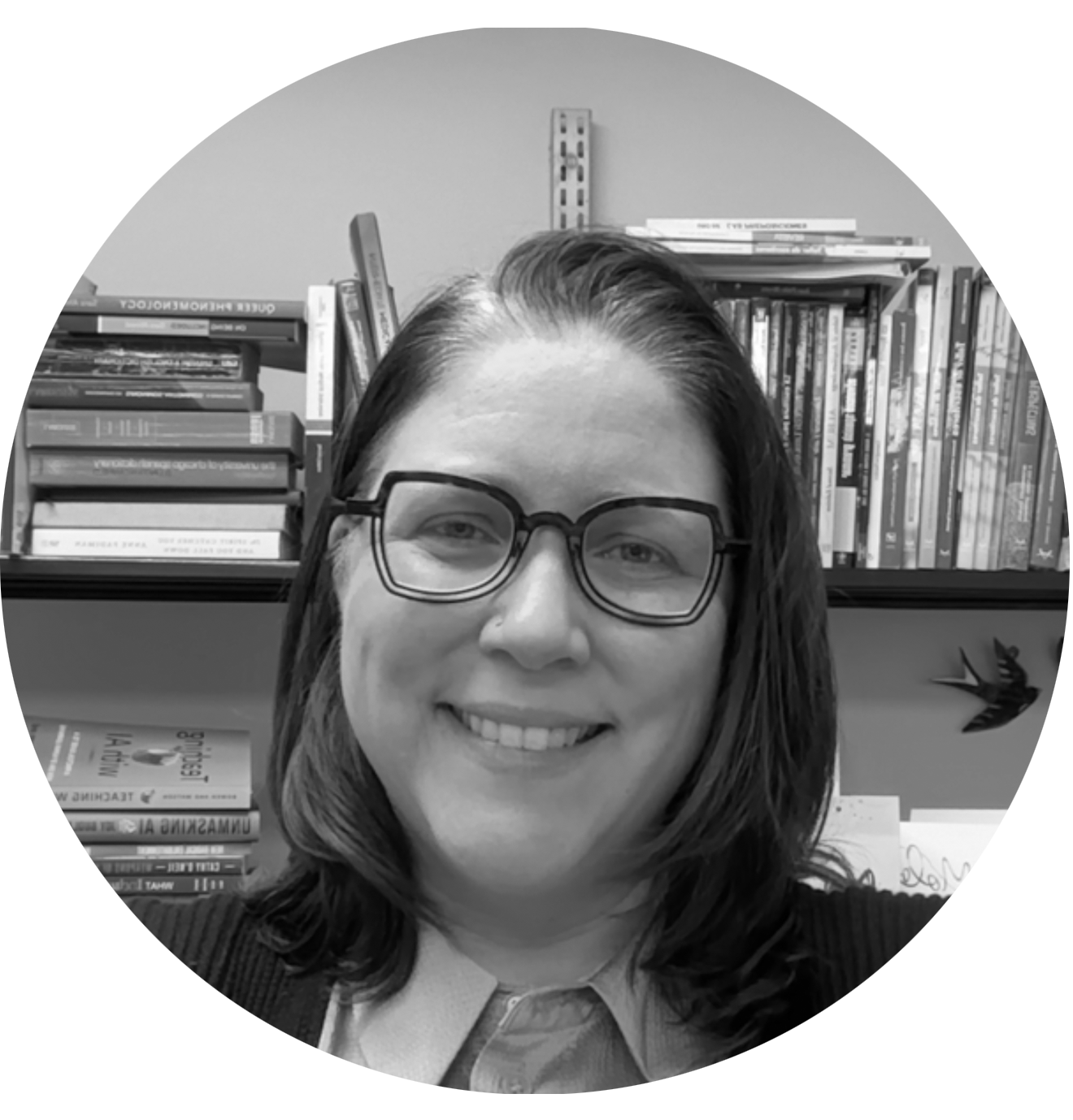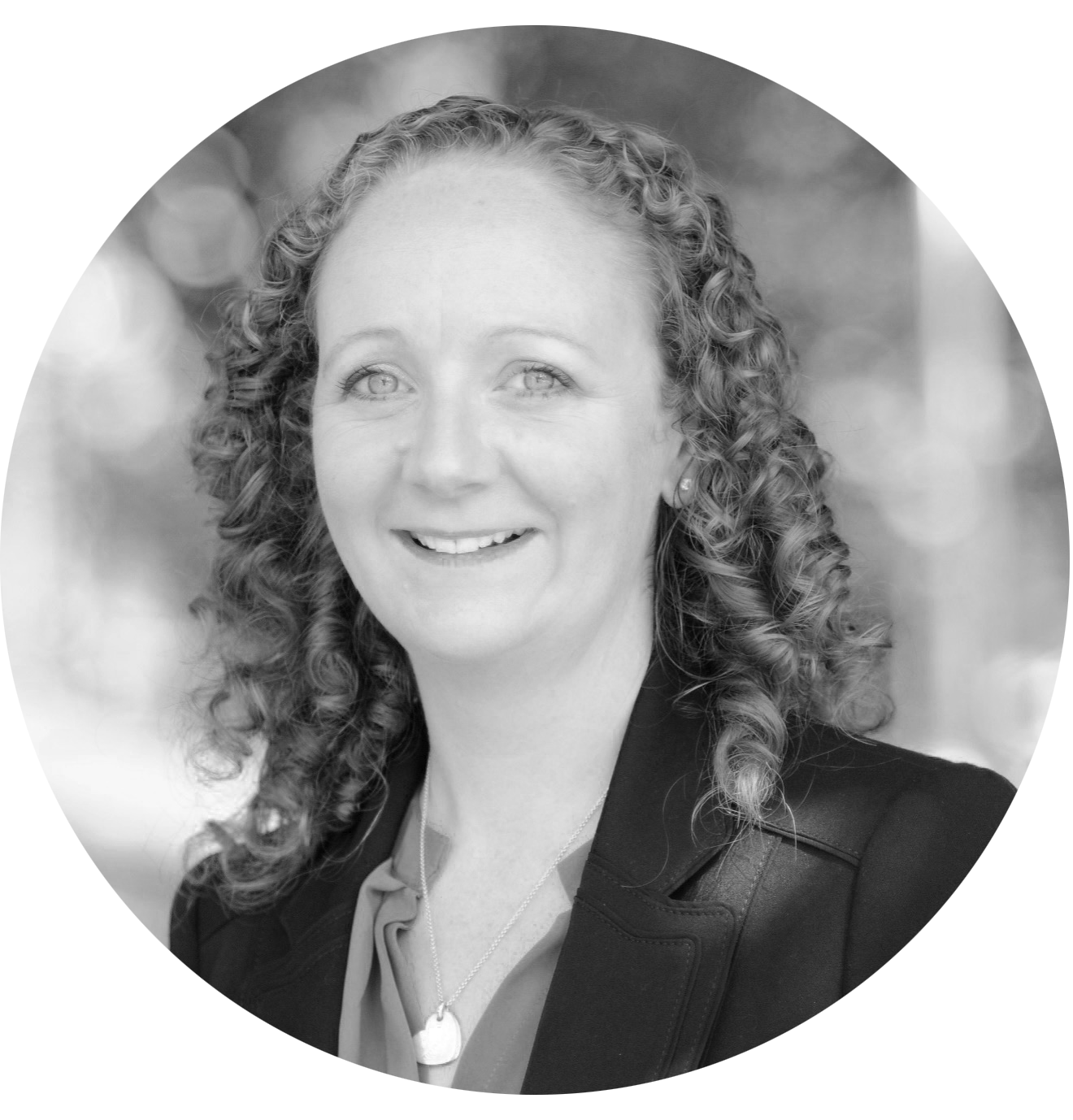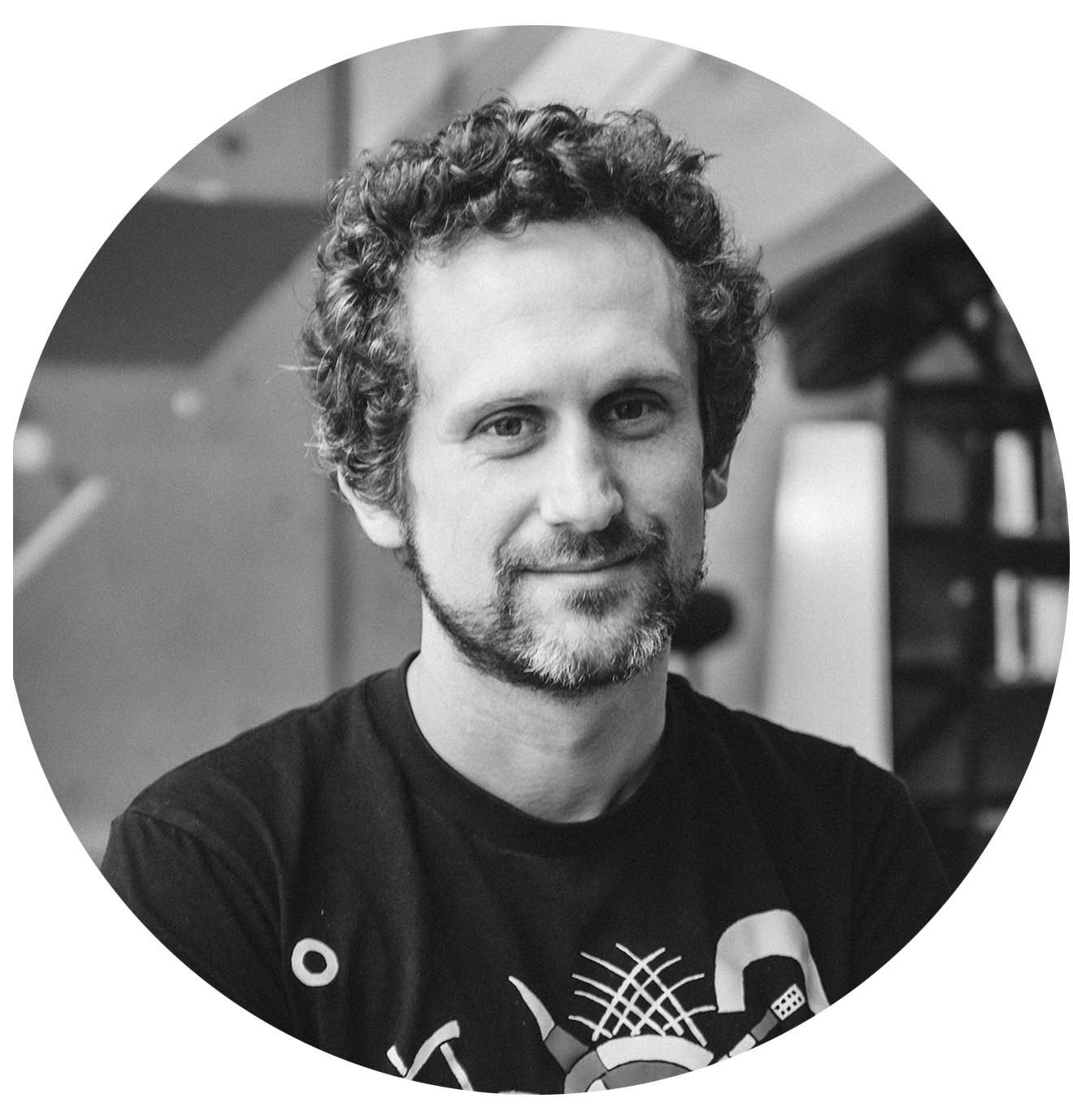2025 Summer Institute - Keynote Speakers
- RIT/
- Center for Teaching and Learning/
- Programs and Events/
- Summer Institute for Teaching and Learning/
- 2025 Summer Institute/
- 2025 Summer Institute - Keynote Speakers

Melissa McCarron, Assistant Teaching Professor of Spanish at the University at Buffalo

Marina Smitherman, Interim Dean, School of Health Professions, Professor of Biology at Dalton State College

Andrew White, Co-Founder & Head of Science of FutureHouse.
Wednesday Keynote Speaker

Melissa McCarron, Assistant Teaching Professor of Spanish at the University at Buffalo
Melissa J. McCarron, PhD (Associate Teaching Professor of Spanish) is a faculty member in the Department of Romance Languages and Literatures at the University at Buffalo (College of Arts and Sciences) specializing in Languages for Specific Purposes (LSP), Spanish for the Health Professions, proficiency-based language instruction, and the development and application of ethical and justice-oriented AI for the common good. She works at the intersections of health care systems, language access, and applied humanities. Her research and teaching focus on interprofessional, community-engaged research and the role of cultural competence in improving outcomes among communities most affected by health inequities.
Keynote: Humanizing the Algorithm: Lessons in Innovation, Engagement, and Collaboration
When: Wednesday, May 14, 2025 - 8:30 to 9:50 am
Location: SHED, Room 3300
While the American academic landscape is undeniably fraught with challenges, extending beyond the rising cost of higher education and low enrollments to the current presidential administration’s aggressive pursuit of policies aimed at systematically curtailing research, dismantling diversity, equity and inclusion initiatives, and the emergence of technologies that disproportionately favor data that is predominantly Western and English-speaking, language and area studies scholars like myself are presented with unique opportunities for critical reflection and transformative change. The chaos and uncertainty of the moment demand urgent and radical repositionings of the role of higher education from passive observer of crisis to active source of resilience, inclusion, and innovation. Re-orienting language and area studies, and the Humanities more broadly, toward critical recalibration of our programmatic, curricular, and disciplinary identities has the potential to empower students to navigate the systemic crises of these times, provide rewarding learning experiences on campus, and facilitate impactful engagement within communities beyond it.
Workshop: Remixing the Disciplines: Practical Strategies for Pedagogical Innovation
When: Wednesday, May 14, 2025 - 1:30 to 2:20 pm
Location: Wallace Library, Room 3420
This interactive 50-minute workshop explores practical, classroom-based strategies to support pedagogical innovation across disciplines. Participants will engage with topics such as transdisciplinary teaching, alternative grading models, inclusive rubric design, addressing the hidden curriculum, and the thoughtful integration of generative AI. You’ll leave with fresh, adaptable ideas to remix and enhance your own teaching practices.
Thursday Keynote Speaker

Marina Smitherman, Interim Dean, School of Health Professions, Professor of Biology at Dalton State College
Marina Smitherman is Interim Dean of the School of Health Professions and a Professor of Biology at Dalton State College. With over two decades of college teaching experience, Dr. Smitherman has specialized in Educational Development; having served as Director of the Center for Excellence in Teaching and Learning, Director of the Center for Academic Excellence, and Department Chair of Life Sciences. Dr. Smitherman won the University System of Georgia Felton Jenkins Jr. Faculty Hall of Fame Teaching Award in 2020. She is a co-author of “Taking Flight: Making your Teaching and Learning Center Soar” published with Stylus in 2020 and served as Editor-in-Chief of ‘To Improve the Academy’ the POD network journal. Originally from England, Dr. Smitherman holds a D.Phil. from the University of Oxford in Clinical Medicine and a master’s degree in public health from the University of Manchester.
Keynote: Put your Own Mask on First: Flourishing as Faculty in Higher Education
When: Thursday, May 15, 2025 - 8:30 to 9:50 am
Location: SHED, Room, 3300
Faculty in higher education face unique challenges that can impact their health and wellness, from managing heavy workloads or student crises to navigating the complexities of juggling professional and personal responsibilities. This interactive keynote explores the seven dimensions of health and wellness; physical, emotional, social, intellectual, spiritual, occupational, and environmental, and their interconnected role in fostering holistic wellbeing.
Using active learning techniques, participants will engage in reflective exercises, collaborative discussions, and practical goal-setting activities to explore strategies for enhancing their personal and professional wellness.
By the end of the session, attendees will leave with actionable insights and personalized goals to prioritize their wellness and flourish in their professional journeys.
Workshop: Breaking Through Barriers: Advancing Faculty Wellness with the Immunity to Change Framework
When: Thursday, May 15, 2025 - 1:00 to 1:50 pm
Location: Wallace Library, Room 3490
Building on the insights from the keynote “Flourishing in Higher Education,” this follow-up workshop offers a deeper dive into personal wellness planning using Kegan and Lahey’s Immunity to Change framework. While many of us set wellness goals with the best of intentions, unseen internal barriers often prevent real change. This hands-on session helps participants identify those hidden assumptions and competing commitments or behaviors that can derail progress toward sustainable wellbeing.
Participants will revisit the seven dimensions of wellness and select one area where they want to experience meaningful improvement. Through reflective guided exercises, and peer coaching, each attendee will map out their own Immunity to Change diagnostic, shining a light on the beliefs and actions that hold them back. With the support of facilitators and colleagues, participants will reframe these internal roadblocks and build concrete strategies for making lasting change.
Ideal for faculty members who are ready to move from intention to action, this workshop empowers participants to take control of their wellness journey and model a culture of health and balance across their institutions.
Friday Keynote Speaker

Andrew White, Co-Founder & Head of Science of FutureHouse.
Andrew White is co-founder and head of science at FutureHouse, a San Francisco AIxBio non-profit research organization and associate professor of chemical engineering at University of Rochester. Andrew White is a researcher with peer-reviewed publications and books across the domains of large language models in chemistry, explainable artificial intelligence, statistical mechanics, and chemical engineering. He has won junior investigator awards from the National Science Foundation and National Institutes of Health along with professional and teaching awards for excellence as a chemical engineer. Andrew is an active member of the scientific community as a peer reviewer for over 30 journals, multiple national and private grant awarding institutions, and serves on the Chemical Sciences Roundtable at the National Academy of Science. Andrew is also a science communicator with large followings on X and LinkedIn and has been interviewed in multiple publications such as the New York Times, Bloomberg, Nature, Financial Times, and Science. Andrew serves on multiple scientific advisory boards across biotech. He has contributed to the ongoing debate around safety of artificial intelligence as an OpenAI red teamer, speaking at multiple policy summits, and visiting the White House to advise the office of science and technology policy on the consequences of AI models.
Keynote: The Automation of Scientific Discovery with Artificial Intelligence
Time: Friday, May 16, 2025 - 8:30 to 9:50 am
Location: SHED, Room 3300
The intellectual bottlenecks of science are growing with exponential growth in research paper counts, complexity of papers, and a concurrent decline in scientific productivity and funding. The next major breakthroughs will increasingly rely on automation of the stages of scientific discovery. One approach has been scientific agents - AI models equipped with tools and data that a human expert would have. These are increasingly automating tasks such as literature research, hypothesis generation, and data analysis. They can scale in dimensions beyond what has been previously possible, like checking every claim of a paper against all previous literature for disagreement. But the most surprising recent progress has been on reasoning models that can be tuned to spend longer thinking on problems than a human might, and are dramatically saturating most benchmarks for intelligence. These models will disrupt the current trajectory of AI in STEM, and I'll share how they're inverting the current mismatch between academia and industry. Finally, I will discuss the changing role of an academic in an increasingly automated discovery world, and what the training will look like for the next generation.
